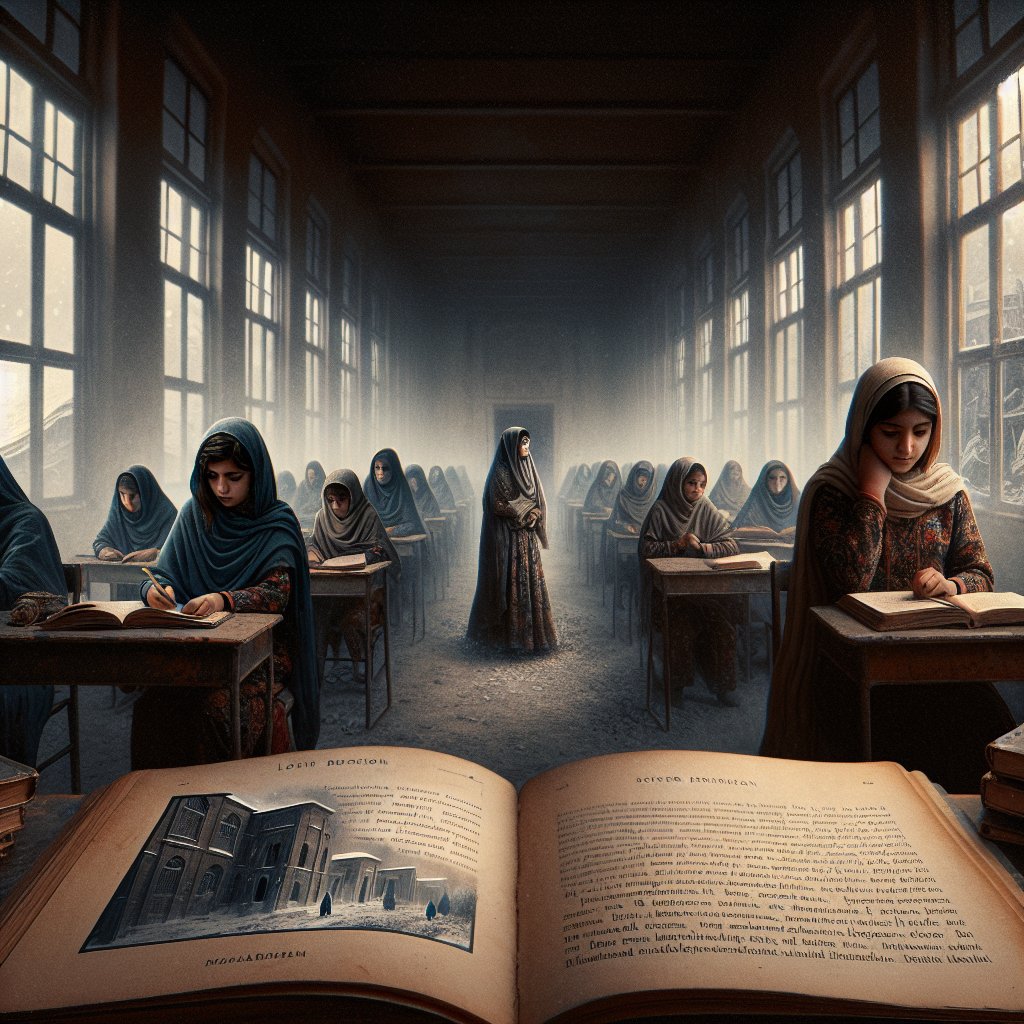Content created by AI
End of the Road for Afghan Girls' Education Under Taliban Regime
In the dusty corridors of Kabul's Bibi Razia School, a somber mood prevails where once the sounds of young Afghan girls reciting lessons and sharing dreams of their future could be heard. For 13-year-old Bahara Rustam and many like her, the final bell has tolled on their education journey far too soon. With the withdrawal of U.S. and NATO forces from Afghanistan, the consequences of the Taliban's tightened governance are manifesting squarely on the shoulders of the country's young girls. A ban initially introduced in September 2021, barring girls from studying past sixth grade, has been steadfastly enforced — a decision that reverberates with the sound of classroom doors shutting across the nation.
In late 2022, the Taliban made further draconian cuts to education rights by extending this ban to universities. Despite significant international backlash and concern for the legitimacy of the Taliban's rule, the situation for Afghan girls remains dire. Last week, the United Nations' special envoy Roza Otunbayeva expressed alarm over this burgeoning crisis, highlighting the risk of an entire generation of Afghan girls losing their right to education and the resulting gap this will create.
Inexplicably, while the doors to formal education close, Afghan girls have been pointed toward religious schools or madrassas as an alternative. However, this option raises concerns over curriculum standardization and the inclusivity of modern education subjects — a vague option that fails to reassure those affected.
At home, Bahara Rustam clings to the scraps of education she has already received, thumbing through textbooks without the guidance of a teacher or the camaraderie of classmates. Her story is a stark illustration of dashed hopes, as what should have been a milestone — graduating from sixth grade — became a poignant farewell to formal education.
Setayesh Sahibzada's plight mirrors that of countless Afghan girls. Once aspiring to uplift others through teaching, she now faces the desolate reality of her aspirations being stripped away. These personal tragedies are set against the warning issued by analyst Muhammad Saleem Paigir, who predicts an ominous future for a country that sidelines half its human capital. The consensus is clear: an uneducated populace is neither free nor prosperous.
Under the Taliban's current dictates, women and girls are largely confined to their homes, significantly restricted from public spaces and employment opportunities. This oppressive climate not only snatches away their freedom to learn but also their potential to contribute meaningfully to society and achieve self-sufficiency.
The international community looks on as educational exclusion threatens to cast a long shadow over Afghanistan's landscape, with implications set to last generations. Yet, in the pages of textbooks quietly turned in their homes, Afghan girls continue to hold on to the hope for a future where education is recognized not as a privilege, but a fundamental right for all.










